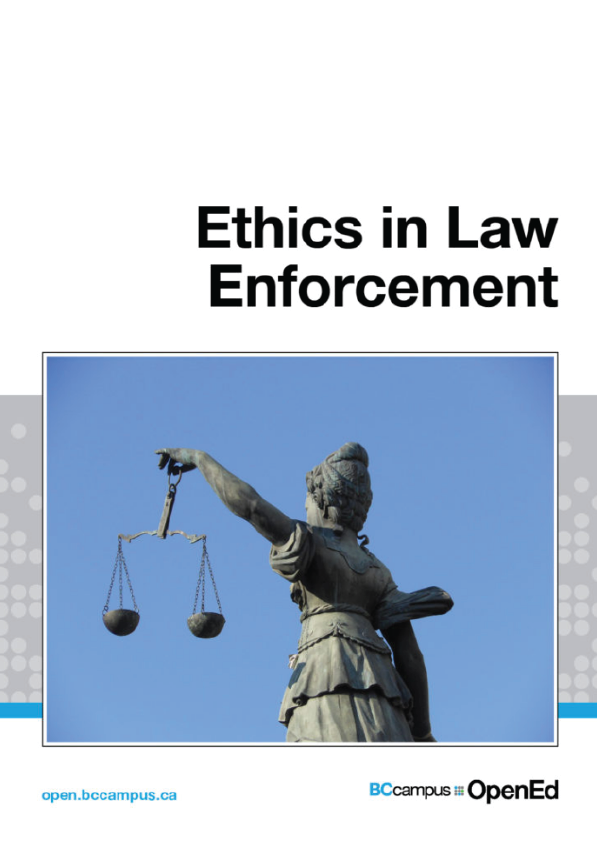In this book, you will examine the moral and ethical issues that exist within law enforcement. This book will also familiarize you with the basic history, principles, and theories of ethics. These concepts will then be applied to the major components of the criminal justice system: policing, the courts, and corrections. Discussion will focus on personal values, individual responsibility, decision making, discretion, and the structure of accountability. Specific topics covered will include core values, codes of conduct, ethical dilemmas, organizational consequences, liability, and the importance of critical thinking. By the end of this book, you will be able to distinguish and critically debate contemporary ethical issues in law enforcement.
For citizens, even for those of us with no aspirations in a career in law enforcement, morality and integrity are important characteristics to demonstrate. We instinctively know that it is good to be moral and act with integrity, but by coming to an understanding of the reasons for morality and integrity, we will be motivated to champion such behaviour. Among the reasons to be moral and integral, regardless of occupation are to:
- Make society better. When we help make society better, we are rewarded with also making better own lives and the lives of our families and friends. Without moral conduct, society would be a miserable place.
- Treat everyone equally. Equality is a cornerstone of most Western democracies, where all individuals are afforded the same rights. This is not possible without the majority of citizens behaving in a moral manner.
- Secure meaningful employment. Often employers will look at a person’ past behaviour as a predictor of future behaviour. Someone who has a history of immoral behaviour will have difficulty securing employment in a meaningful job, as that person may not be trusted.
- Succeed at business. If you are employed in an occupation in which there you must rely on others, your moral conduct will determine the degree of goodwill that you receive from others. Businesses that have a checkered moral history are typically viewed with caution and are unlikely to attract new customers through word of mouth, and therefore are unlikely to prosper. This is especially the case where social media makes customer reviews readily accessible.
- Lessen stress. When we make immoral decisions, we tend to feel uncomfortable and concerned about our decision making. Making the right moral decision, or taking a principled perspective on an issue, reduces stress.
Ultimately, ethics is important not so that “we can understand” philosophically, but rather so we can “improve how we live” (Lafollette, 2007). By being moral, we enrich our lives and the lives of those around us. It’s especially important to live a moral life when we are young, as it is helpful to exercise and practise these concepts before being confronted with more complex issues. Lafollette (2007) theorizes that ethics is like most everything else that we strive to be good at; it requires practice and effort. Practising and making an effort to make moral decisions throughout life will pay dividends when we are faced with serious moral dilemmas. Furthermore, having insight into “…historical, political, economic, sociological and psychological insights…” (Lafollette, 2007, p.7) allows us, as decision makers, to make more informed decisions, which will likely result in moral decisions. In sum, the practice of being moral, allows us to work on these skills, so when we are faced with real situations that impact others, we are ready.











